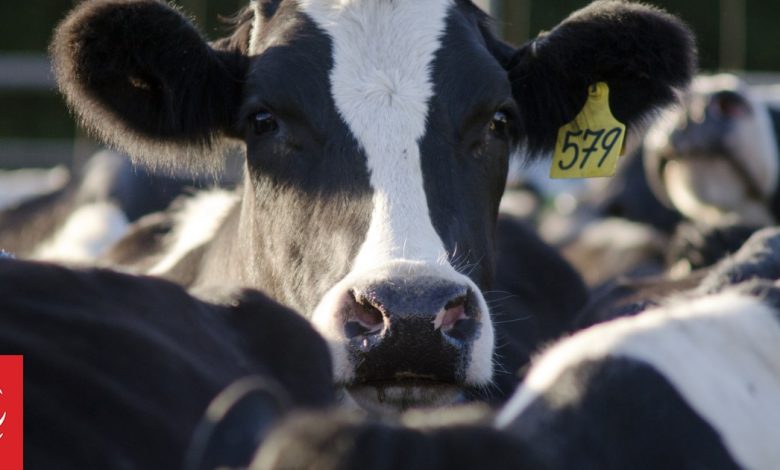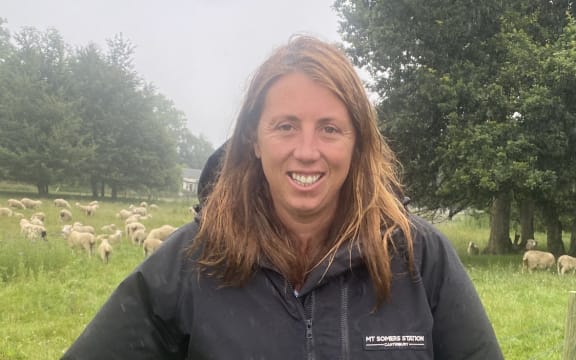Coalition exempts farmers from ETS, sets up fresh working group

Farmers have been given more time before they start paying for emissions as the coalition replaces He Waka Eke Noa with another working group.
The coalition has confirmed it will keep agriculture out of the Emissions Trading Scheme (ETS), as promised by National ahead of the 2023 election.
It is scrapping the sector-led group He Waka Eke Noa and setting up a new Pastoral Sector Group to “constructively tackle” biogenic methane.
The government will amend the Climate Change Response Act to remove agriculture, animal processors and fertiliser companies from entering the ETS in 2025.
The 2025 provision was a backstop created by the previous government to give agricultural groups an incentive to agree on a way to price farming gases outside the ETS.
The coalition will also invest $400 million over the next four years to “accelerate the commercialisation” of tools and technology to reduce on-farm emissions, Agriculture Minister Todd McClay said.
“As part of our commitment to the sector, we are scaling up funding for the New Zealand Agricultural Greenhouse Gas Research Centre where an additional $50.5m will be invested over the next five years in projects to find solutions to reduce the sector’s emissions.
“These projects include the development of a methane vaccine; a project to breed lower emissions cattle; and accelerating the work on methane and nitrous oxide inhibitors.”

McClay said New Zealand farmers were some of the world’s most carbon-efficient food producers and the coalition would invest in research and development to reduce methane, not productivity.
“The government is committed to meeting our climate change obligations without shutting down Kiwi farms. It doesn’t make sense to send jobs and production overseas, while less carbon-efficient countries produce the food the world needs.
“That is why we are focused on finding practical tools and technology for our farmers to reduce their emissions in a way that won’t reduce production or exports.”
Cabinet had also decided to formally disestablish He Waka Eke Noa from today as the process had failed and was no longer tenable, McClay said.
“The primary sector worked collaboratively for years, however, Labour rejected many of its proposals compromising consensus, relationships, and confidence across rural New Zealand. To restore confidence, Cabinet has decided to formally disestablish He Waka Eke Noa from today.
“It’s time for a fresh start on how we engage with farmers and processors to work on biogenic methane.”
The government will engage directly with levy bodies and sector organisations like DairyNZ, Beef + Lamb New Zealand, Deer Industry New Zealand, Federated Farmers, Dairy Companies Association of New Zealand and the Meat Industry Association.
The terms of reference for this group would be developed and agreed with the new Pasture Sector Group.
Associate Minister of Agriculture Andrew Hoggard said it was critical domestic efforts to cut emissions didn’t harm our local agricultural sector.
“Agriculture is the backbone of our economy and maintaining its profitability is pivotal to boosting our GDP, raising the standard of living, and providing the high-quality public services Kiwis deserve.”
National still plans on pricing agriculture emissions before 2030, a spokesperson for Climate Change Minister Simon Watts confirmed.
Green Party co-leader Chlöe Swarbrick said the government had once again kicked climate action down the road by removing agricultural emissions from the ETS.
“Climate delay is the new denial. Today’s announcement from the government that it will shred progress on agricultural emissions pricing is just the latest episode of disregard for our climate and environment,” Swarbrick said.
“From pouring oil, coal and gas on the climate crisis fire, the government has now put half of our emissions which come from agriculture into the industry-led too-hard basket.
“Meanwhile, farmers on the ground are among those hit the first and worst by climate change.”
Sector group welcomes decision

The producer group Beef and Lamb New Zealand says removing agriculture from the ETS is welcome news for farmers.
Chairperson Kate Acland said the group had consistently argued that agriculture going into the ETS would be disastrous – removing it provided certainty.
Acland also welcomed the official disestablishment of the He Waka Eke Noa Primary Sector Climate Action Partnership.
“While we are prepared to be part of a new group that discusses how to manage New Zealand’s agricultural emissions, any involvement will be with full transparency and discussion with our farmers. We will not allow this to be a repeat of the He Waka Eke Noa process,” she said.
She said pricing agricultural emissions would not achieve reductions, and they were happening already, more quickly than needed.
“The significant decline in stock numbers as a result of afforestation in the last few years means our sector will likely exceed the current target of a 10 percent reduction in methane by 2030.
“Based on this there is absolutely no justification for a price. This is a non-negotiable for our farmers.
“Our view is that we should be focused on the outcome we are trying to achieve – the management of agricultural emissions – and be open to solutions and different ways of achieving this.”
Sheep and beef farmers have reduced their absolute emissions by more than 30 percent since 1990 and were offsetting a significant proportion of their remaining emissions through the trees and native vegetation on their farms. Recent analysis by AgResearch indicated that sheep production was already ‘warming neutral’, she said.
Federated Farmers was also pleased.
President Wayne Langford said the previous government was too focused on pricing farmers, driving blindly towards unachievable, political, unscientific methane reduction targets.
“There was a complete disregard for the significant and unjustifiable costs this would place on hardworking farming families and the wider New Zealand economy.”
Langford said Federated Farmers would never accept a plan that would see 20 percent of sheep and beef farms, and 5 percent of dairy farmers, priced out of existence.
Federated Farmers’ bottom lines were that methane targets would be reviewed; viable and cost-effective tools would be available for farmers, and no emissions leakage would occur.
“Today’s government announcement gives us a lot of confidence for the future,” Langford said.
The organisation was looking forward to working with the newly formed Pasture Sector Group.
According to the news on Radio New Zealand




